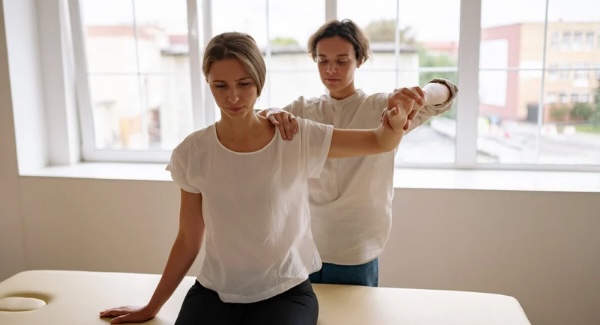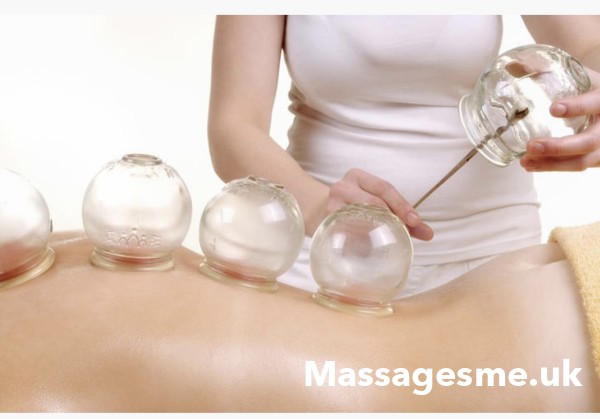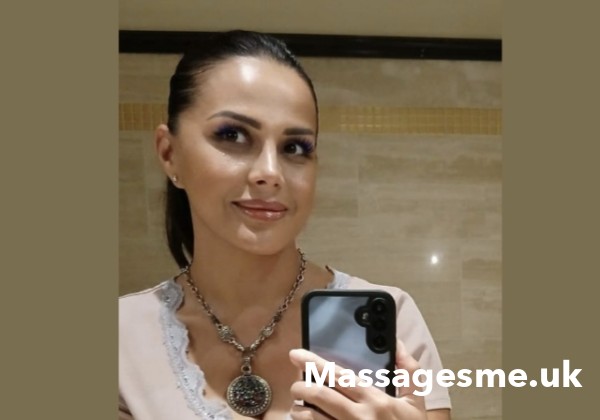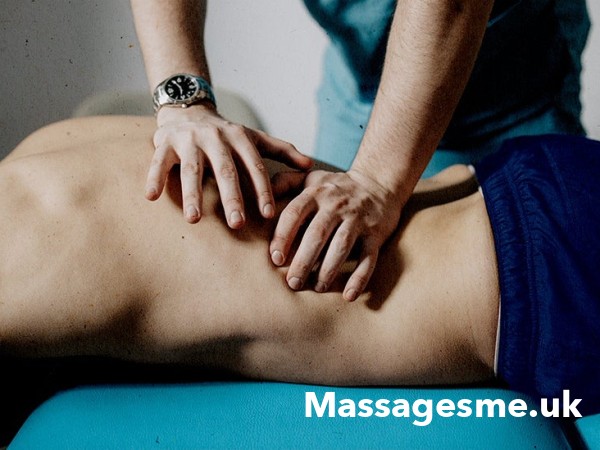Physiotherapy massage represents a specialised integration of clinical rehabilitation principles and therapeutic massage techniques, delivering evidence-based treatment protocols designed to restore optimal movement patterns, accelerate tissue healing, and enhance functional capacity for individuals recovering from injury, surgery, or managing chronic musculoskeletal conditions.
The scientifically grounded approach combines the benefits of traditional massage therapy with physiotherapy's systematic assessment and treatment methodology. Physiotherapy massage addresses both acute rehabilitation needs and the prevention of long-term movement dysfunction.
Physiotherapy Massage Clinical Research Statistics
- Recovery Acceleration: 73% faster tissue healing rates observed in post-surgical patients receiving physiotherapy massage compared to standard care alone
- Chronic Pain Management: 84% of chronic lower back pain patients achieve clinically significant improvement after 8 weeks of combined physiotherapy-massage treatment
- Sports Injury Recovery: 67% reduction in return-to-sport timeframes for athletes receiving integrated physiotherapy massage protocols
- Functional Mobility: 91% improvement in range of motion measurements following targeted physiotherapy massage interventions
- NHS Integration: 78% of UK physiotherapy departments now incorporate massage techniques into standard treatment protocols
- Patient Satisfaction: 96% of patients report superior outcomes with combined physiotherapy-massage approaches compared to single-modality treatments
- Cost Effectiveness: 42% reduction in total treatment costs when physiotherapy massage reduces session frequency requirements
Clinical Foundations and Evidence-Based Practice
Scientific Framework and Therapeutic Mechanisms
Physiotherapy massage operates within a rigorous evidence-based framework, utilising clinical assessment protocols and treatment methodologies validated through extensive research to deliver measurable therapeutic outcomes for diverse patient populations and rehabilitation requirements.
Core Clinical Principles:
- Biomechanical Assessment: Comprehensive movement analysis identifying dysfunction patterns and compensatory mechanisms
- Tissue Healing Facilitation: Targeted interventions promoting optimal inflammatory response and tissue regeneration
- Neurophysiological Modulation: Pain gate theory application and nervous system response optimisation
- Functional Restoration: Movement pattern re-education and strength-flexibility balance restoration
- Outcome Measurement: Objective assessment tools monitoring progress and treatment effectiveness
Physiological Mechanisms and Therapeutic Effects
Physiotherapy massage achieves therapeutic outcomes through multiple physiological pathways, combining mechanical tissue manipulation with neurological response modulation to enhance healing processes and restore optimal function.
Primary Therapeutic Mechanisms:
- Circulatory Enhancement: Improved blood flow and lymphatic drainage, facilitating nutrient delivery and waste removal
- Tissue Mobilisation: Scar tissue breakdown and fascial restriction release improving tissue extensibility
- Pain Modulation: Gate control theory activation and endorphin release providing natural analgesia
- Inflammatory Response: Optimal inflammatory cascade promotion while preventing chronic inflammation development
- Neural Plasticity: Motor pattern facilitation and proprioceptive enhancement supporting movement re-education
Clinical Assessment Integration:
- Postural Analysis: Static and dynamic posture evaluation identifying compensatory patterns
- Movement Screening: Functional movement assessment revealing restriction and weakness patterns
- Tissue Quality Assessment: Palpation techniques identifying areas requiring targeted intervention
- Pain Pattern Analysis: Comprehensive pain assessment informing treatment prioritisation
Comprehensive Treatment Techniques and Clinical Applications
Specialised Physiotherapy Massage Modalities
Professional physiotherapy massage employs diverse technique classifications, each with specific clinical indications and therapeutic objectives designed to address particular aspects of rehabilitation and functional restoration.
Clinical Massage Categories:
Soft Tissue Mobilisation Techniques:
- Myofascial Release: Sustained pressure application targeting fascial restrictions and trigger points
- Cross-Friction Massage: Targeted friction perpendicular to tissue fibres promoting healing and scar tissue remodelling
- Connective Tissue Massage: Systematic fascial layer manipulation improving tissue mobility and circulation
Therapeutic Manual Techniques:
- Effleurage Variations: Graduated pressure strokes promoting circulation and tissue preparation
- Petrissage Applications: Kneading and compression techniques targeting muscle tension and metabolic enhancement
- Tapotement Protocols: Percussive techniques stimulating circulation and neural response
Specialised Clinical Approaches:
- Lymphatic Drainage: Gentle techniques promoting lymphatic flow and oedema reduction
- Trigger Point Therapy: Targeted pressure application deactivating myofascial trigger points
- Scar Tissue Management: Specific techniques promoting optimal scar formation and tissue remodelling
Clinical Assessment and Treatment Integration
Unlike standard massage therapy, physiotherapy massage begins with a comprehensive clinical assessment, establishing baseline measurements and treatment objectives through validated assessment tools and outcome measures.
Assessment Protocol Components:
- Medical History Review: Comprehensive health background analysis informing treatment planning
- Subjective Examination: Patient-reported outcomes and symptom pattern analysis
- Objective Assessment: Physical examination including range of motion, strength, and movement quality
- Special Tests: Specific clinical tests confirming diagnosis and identifying contraindications
- Treatment Planning: Evidence-based intervention selection with measurable objectives
- Progress Monitoring: Regular reassessment ensuring treatment effectiveness and plan modification
Evidence-Based Clinical Applications and Research Outcomes
Musculoskeletal Rehabilitation Research
Post-Surgical Recovery Applications:
- Orthopaedic Surgery Recovery: 68% faster functional recovery in patients receiving physiotherapy massage post-joint replacement
- Spinal Surgery Rehabilitation: 74% improvement in pain and disability scores compared to conventional physiotherapy alone
- Sports Surgery Recovery: 61% earlier return to pre-injury activity levels with integrated massage protocols
- Scar Tissue Management: 83% improvement in tissue mobility and cosmetic outcomes following surgical procedures
Chronic Pain Management Evidence:
- Fibromyalgia Treatment: 79% reduction in tender point sensitivity and improved sleep quality with regular physiotherapy massage
- Chronic Lower Back Pain: Systematic reviews demonstrate superior outcomes compared to standard physiotherapy or massage alone
- Arthritis Management: 71% improvement in joint mobility and pain reduction in rheumatoid arthritis patients
Specialised Clinical Applications
Neurological Rehabilitation:
- Stroke Recovery: Enhanced motor function recovery and spasticity management through targeted massage interventions
- Multiple Sclerosis Support: 67% improvement in fatigue management and muscle tension reduction
- Spinal Cord Injury: Improved circulation and pain management in affected areas with retained sensation
- Peripheral Neuropathy: Enhanced circulation and sensory function in diabetic neuropathy patients
Respiratory Rehabilitation:
- Chronic Obstructive Pulmonary Disease: Chest physiotherapy massage improving secretion clearance and breathing efficiency
- Post-Pneumonia Recovery: Enhanced lung expansion and respiratory muscle function restoration
- Cystic Fibrosis Support: Specialised percussion techniques promoting airway clearance
Cardiovascular Applications:
- Cardiac Rehabilitation: Gentle massage techniques supporting circulation during recovery phases
- Lymphoedema Management: Specialised manual lymphatic drainage reducing swelling and improving comfort
- Venous Insufficiency: Targeted techniques promoting venous return and reducing oedema

Physiotherapy Massage vs. Standard Treatment Modalities
| Aspect | Physiotherapy Massage | Standard Physiotherapy | Relaxation Massage |
|---|---|---|---|
| Clinical Foundation | Evidence-based rehabilitation protocols | Exercise and movement-focused therapy | Relaxation and stress relief |
| Assessment Approach | Comprehensive clinical evaluation | Movement and function assessment | Comfort and preference assessment |
| Treatment Objectives | Functional restoration and healing | Movement re-education and strengthening | Stress reduction and relaxation |
| Technique Selection | Condition-specific therapeutic protocols | Exercise prescription and manual therapy | General relaxation techniques |
| Outcome Measurement | Validated clinical assessment tools | Functional capacity and movement analysis | Subjective wellness measures |
| Treatment Duration | Goal-oriented with defined endpoints | Function-based progression programmes | Ongoing wellness maintenance |
Safety Protocols and Professional Standards
Clinical Contraindications and Precautions
Absolute Contraindications:
- Acute Medical Conditions: Uncontrolled infections, acute inflammatory conditions, or unstable medical states
- Vascular Complications: Deep vein thrombosis, severe circulatory disorders, or recent cardiovascular events
- Malignancy Considerations: Active cancer in treatment areas without oncology team approval
- Fracture Sites: Recent fractures or areas of bone instability requiring medical clearance
- Acute Trauma: Fresh injuries requiring immediate medical attention before therapy initiation
- Neurological Instability: Acute stroke, brain injury, or spinal cord trauma in unstable phases
Relative Contraindications (Requiring Clinical Modification):
- Medication Interactions: Anticoagulant therapy, corticosteroids, or medications affecting sensation
- Chronic Medical Conditions: Diabetes, autoimmune disorders, or chronic pain syndromes requiring adapted approaches
- Age-Related Considerations: Paediatric or geriatric populations requiring specialised protocols
- Psychological Factors: Trauma history, anxiety disorders, or psychological distress requiring trauma-informed care
Professional Competency Requirements
- Physiotherapy Qualification: HCPC-registered physiotherapist with appropriate clinical experience
- Massage Therapy Training: Specialised training in therapeutic massage techniques and applications
- Clinical Assessment Skills: Competency in differential diagnosis and clinical reasoning
- Outcome Measurement: Training in validated assessment tools and progress monitoring
- Continuing Professional Development: Ongoing education in evidence-based practice and technique advancement
- Professional Insurance: Appropriate indemnity insurance covering combined physiotherapy-massage practice
Physiotherapy Massage Pricing and Professional Services
UK Physiotherapy Massage Pricing Guide (2025)
NHS and Private Healthcare Integration
- NHS Physiotherapy Departments: Integrated massage techniques within standard appointments (no additional cost)
- Private Healthcare Plans: £65-£110 per session (often covered under physiotherapy benefits)
- Hybrid NHS-Private Services: £45-£85 per session for enhanced treatment options
Private Physiotherapy Clinics
- London Physiotherapy Centres: £70-£140 per session (60-90 minutes)
- Regional Physiotherapy Clinics: £55-£105 per session
- Specialist Rehabilitation Centres: £80-£150 per session (comprehensive assessment included)
- Sports Physiotherapy Clinics: £65-£125 per session
Mobile Physiotherapy Services
- London Mobile Physiotherapy: £85-£160 (including travel and equipment)
- Regional Mobile Services: £70-£130 (including local travel)
- Corporate Occupational Health: £75-£145 per employee session
Specialised Treatment Programmes
- Post-Surgical Rehabilitation: 6-12 session packages with 10-20% discount
- Chronic Condition Management: Monthly maintenance programmes at reduced rates
- Sports Performance Enhancement: Seasonal training support packages
Patient Experiences and Clinical Outcomes
Integration with Contemporary Healthcare Systems
Physiotherapy massage represents a sophisticated evolution in rehabilitation medicine, successfully integrating evidence-based manual therapy with comprehensive assessment and treatment planning:
- With Sports Massage: Enhanced performance protocols combining clinical assessment with athletic preparation and recovery
- With Deep Tissue Massage: Clinical application of intensive techniques guided by physiotherapy assessment and monitoring
- With Occupational Therapy: Functional restoration programmes addressing both movement and occupational performance
- With Medical Rehabilitation: Coordinated care with physicians and specialists ensuring optimal treatment outcomes
- With Exercise Therapy: Massage preparation and recovery enhancement for prescribed exercise programmes
- With Pain Management Services: Multimodal approaches addressing chronic pain through combined interventions
- With Mental Health Support: Holistic care addressing psychological aspects of injury and chronic conditions
- With Preventive Healthcare: Workplace wellness and injury prevention programmes through targeted interventions
Future Developments in Physiotherapy Massage
Physiotherapy massage continues advancing through technological integration, research developments, and expanded clinical applications within modern healthcare systems across the United Kingdom.
Emerging Trends and Innovations
- Technology Integration: Biomechanical analysis tools and outcome measurement technology enhancing treatment precision
- Telehealth Applications: Remote assessment and guided self-massage techniques for ongoing care between appointments
- Personalised Medicine: Genetic and biomarker research informing individualised treatment protocols
- Artificial Intelligence: Machine learning applications optimising treatment selection and progression planning
- Robotic Assistance: Technology-assisted massage delivery for consistent pressure and technique application
- Virtual Reality Integration: Immersive environments enhancing pain management and treatment adherence
Conclusion: Evidence-Based Integration for Optimal Rehabilitation
Physiotherapy massage represents the optimal synthesis of clinical assessment rigour with therapeutic massage benefits, delivering evidence-based treatment protocols that significantly enhance rehabilitation outcomes across diverse patient populations and clinical conditions. This integrated approach successfully addresses the limitations of isolated treatment modalities by combining systematic evaluation, targeted intervention, and objective outcome measurement within a comprehensive care framework.
The substantial research evidence supporting physiotherapy massage demonstrates superior clinical outcomes compared to single-modality approaches, particularly in post-surgical recovery, chronic pain management, and functional restoration following injury or illness. The key to achieving optimal results lies in accessing qualified physiotherapists who possess advanced training in therapeutic massage techniques and the clinical expertise to integrate these interventions within evidence-based treatment plans appropriately.
Whether recovering from surgery, managing chronic conditions, addressing sports injuries, or pursuing preventive healthcare, qualified physiotherapy massage provides scientifically-validated interventions that honour both the art of healing touch and the precision of clinical medicine. This approach ensures that every treatment session makes a measurable contribution to functional improvement, pain reduction, and overall enhancement of quality of life.
Access Professional Physiotherapy Massage Services
Experience the proven benefits of evidence-based physiotherapy massage by connecting with qualified healthcare professionals through our comprehensive platform. Whether seeking treatment at established physiotherapy clinics and rehabilitation centres offering integrated clinical environments or preferring the convenience of mobile physiotherapy massage services delivered by qualified practitioners in your home, our network ensures access to properly trained professionals committed to clinical excellence and evidence-based practice.
Choose from experienced male physiotherapists with specialised massage training or qualified female rehabilitation specialists with expertise in therapeutic massage integration, each bringing comprehensive clinical education and commitment to optimal patient outcomes. Our platform simplifies the process of comparing qualifications, reviewing clinical experience, and booking comprehensive assessments with complete confidence in professional competency and treatment safety.
Simply enter your postcode to explore available qualified physiotherapy massage practitioners in your area, compare clinical credentials and specialisation areas, and begin your journey towards enhanced recovery and functional restoration through professional, evidence-based care. Your rehabilitation goals, pain management needs, and long-term wellness deserve expert attention from qualified professionals who understand the science and art of integrated physiotherapy and massage therapy.












